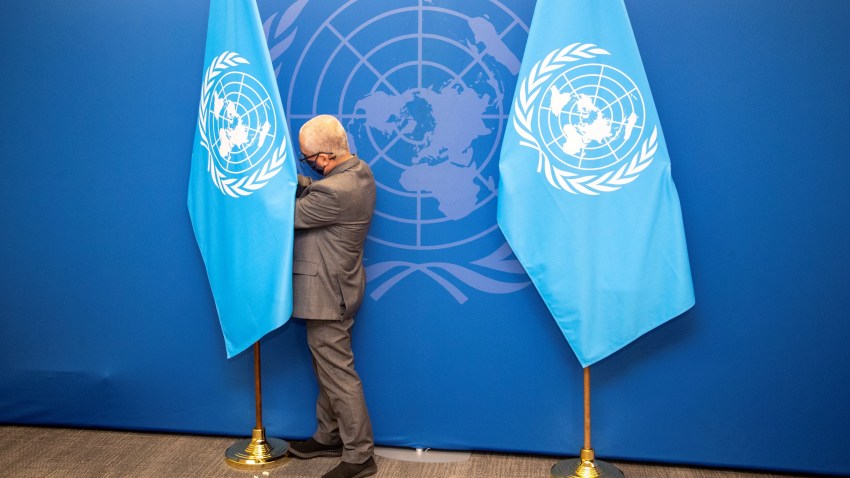Hello everyone. Today at WPR, we’ve got tips on how to be a policy wonk and a look at the dilemma facing Spanish regional parties after last month’s elections.
But first, here’s our take on today’s top story in the news.
Semiconductor wars: Taiwan Semiconductor Manufacturing Co., or TSMC, will spend roughly €3.5 billion, or $3.8 billion, to build a chipmaking factory in Germany, its first in Europe. Germany will contribute up to €5 billion to the project as part of Berlin’s wider goal of boosting its domestic semiconductor industry. (Reuters)
Our Take: Semiconductors, the tiny chips that power everything from smartphones to fighter jets and which will be vital to AI and the green transition, have become perhaps the most crucial part of the so-called Tech War between the West and China. The Biden administration has been particularly assertive in attempting to limit China’s access to the most advanced chips, while boosting the United States’ own domestic semiconductor industry via last year’s CHIPS Act.
In response, the EU earlier this year approved the European Chips Act, a €43 billion subsidy plan with the aim of doubling the bloc’s chipmaking capacity by 2030. The factory deal between Germany and TSMC marks the first major agreement since that plan was approved.
The fact that Berlin is prepared to contribute more to building the factory than TSMC itself highlights two significant trends:
- TSMC, and by extension Taiwan, has become central to Western plans to strengthen strategic supply chains in the chipmaking industry.
- The contest for chipmaking dominance—like that for the technologies powering the green transition—has become increasingly competitive, not only between the West and China, but also between Europe and the U.S.—and even within the EU itself.

Richard Gowan has worked on or around the U.N. for two decades and has built a reputation as an analyst and commentator on multilateral matters.
In his column today, he offers seven “more-or-less-useful” tips on how to be a policy wonk:
Spain’s inconclusive elections on July 23 left both the conservative and progressive blocs unable to form a majority government. As a result, political parties representing Catalan, Basque and Galician regional nationalists hold the keys to determining the next prime minister.
Their options, however, are limited, leaving them with a tough dilemma. To make matters worse, whichever option they choose, regional parties will alienate different sections of their electorate.
Miquel Vila Moreno breaks down their dilemma and its potential implications:

Question of the Day: Which Latin American country signed a defense pact with Iran in July, according to Iran’s state-run news agency?
Find the answer in the latest WPR Weekly Quiz, then read Frida Ghitis’ column on the agreement and its fallout.

Rebel groups killed at least 21 people in northeastern Congo over the weekend, local officials said. In one attack, a group with ties to the Islamic State reportedly killed 10 civilians.
Another attack was reportedly carried out by M23, a rebel group that reemerged last year after having been dormant for nearly a decade. As Sophie Neiman wrote last month, nearly 1 million people have been displaced since M23’s reemergence, causing humanitarian needs in eastern Congo to skyrocket, while raising thorny questions about regional stability.
The M23 Conflict Is Creating a Humanitarian Nightmare in Eastern Congo
July 27, 2023 | The Central African Republic’s president has secured a referendum on constitutional reform that would allow him to run for a third term. Read more.
*****
The British government on Monday moved 15 asylum-seekers onto a barge docked at the coast that the government hopes will eventually hold 500 people. Critics say the move is the latest example of the country’s increasingly tough—and cruel—migration policies under successive Conservative Party governments.
As Helen Morgan wrote in March, the Conservative Party has been slowly shifting to the far right when it comes to immigration policy, even as its proposed reforms and rhetoric are out of sync with the British public’s feelings toward migration policy and asylum-seekers:
For the U.K.’s Migration Policy, the Cruelty Is the Point
March 15, 2023 | A controversy over rhetoric describing migrants, asylum-seekers and refugees has put the spotlight on the UK’s migration policy. Read more.
That’s all for today’s Daily Review. Coming up, we’re covering democracy in Southeast Asia and the latest chapter in a Cold War-era dispute between Italy and France.
Have a great day,
Jakob Cansler
More From WPR
- James Bosworth on the possible expansion of BRICS.
- Aude Darnal on why the U.S. should end the war on terror.
- Paul Poast on a potential alien visit to Earth.
- Saskia Brechenmacher and Caroline Crystal on the global backlash against abortion rights.

